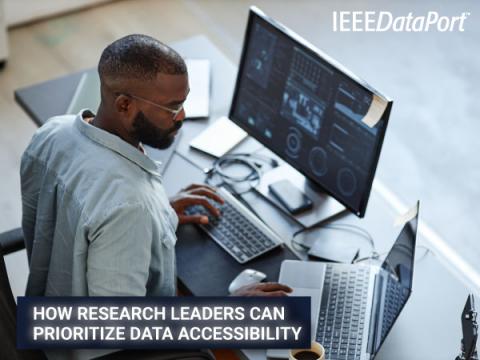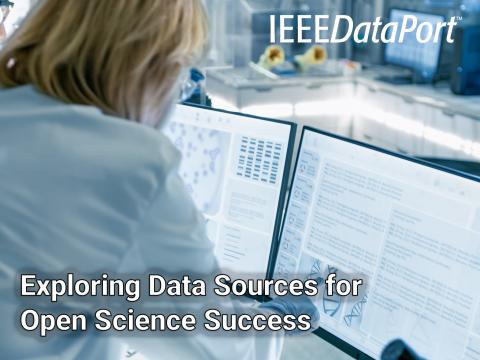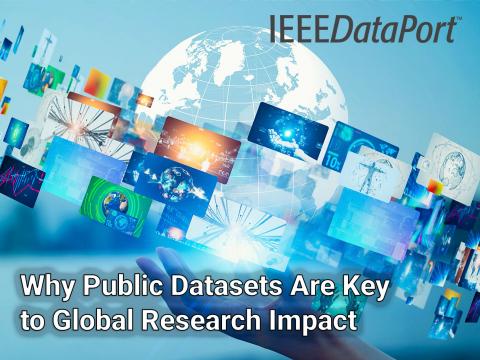Exploring Free Data Sources for Scientific Research Teams
Scientific progress relies on data, and in an era defined by rapid advancements and global collaboration, one principle has emerged as a beacon for researchers—Open Science. At its core, Open Science seeks to break down barriers to access, ensure transparency, and foster collaboration worldwide. From spearheading innovative discoveries to increasing equity in academia, the essence of Open Science is to democratize knowledge and make research findings accessible to all.
However, for many research teams, especially those within academic institutions with limited budgets, acquiring high-quality research datasets while complying with open-access policies can be a significant challenge. Institutions often struggle to identify reliable, cost-effective data sources that align with funding mandates while fueling impactful research.
This blog explores the growing role of Open Science and the value of open data sources in empowering research teams—including tips on navigating challenges and a deeper look at how platforms like IEEE DataPort address these issues.
Understanding Open Science and Its Principles
What Is Open Science?
Open Science can be defined as "the movement to make scientific research (including publications, data, physical samples, and software) and its dissemination accessible to all levels of society, amateur or professional." It focuses on transparency, collaboration, and the ethical sharing of knowledge, ensuring research results are no longer locked away behind costly paywalls or organizational silos.
Core Goals of Open Science:
Make scientific data and publications openly available.
Foster interdisciplinary collaboration and innovation.
Ensure equity in access to research opportunities and findings.
Open Science is transforming research, offering new pathways to innovation, inclusivity, and academic collaboration. By liberating data and findings, it aligns with the FAIR (Findable, Accessible, Interoperable, and Reusable) principles, making results reproducible and usable across disciplines.
Key Principles of Open Science
Data and Resource Sharing:
Encourages widespread sharing of datasets, software, and publications to maximize the global impact of research.
Collaborative Research:
Promotes cross-disciplinary collaboration, reducing duplication of effort and accelerating innovation.
Equity in Research Opportunities:
Provides equitable access to public datasets, removing barriers for underfunded institutions and researchers.
The Role of Open Science in Advancing Global Research
Open Science democratizes research, opening doors to new scientific breakthroughs. Consider how Open Science allows public datasets to be accessed by researchers from underfunded institutions, fostering innovation that transcends borders. A notable example is environmental research, where data-sharing initiatives lead to impactful climate models built by contributors from multiple nations.
By creating frameworks for more inclusive and collaborative work, Open Science reshapes how we approach data-driven decision-making, ensuring that no researcher is left behind.
For further reading, explore the Open Science guiding principles on UNESCO.
The Value of Open Data Sources in Research
Key Benefits of Open Data in Research
Open data sources transform research in meaningful ways. For scientists and organizations alike, the benefits go beyond just cost savings:
Improved Accessibility to Data:
Open datasets eliminate paywalls, ensuring any researcher—regardless of their institution's financial constraints—can access the materials they need. This includes large-scale datasets curated for academic research.
Cost Savings:
Propriety datasets can carry significant costs. Leveraging free public datasets means institutions can redirect resources into actual research.
Fostering Transparent Collaboration:
Open data enables research teams worldwide to collaborate on projects with a shared foundation of accessible information. This creates avenues for innovation and stronger professional networks.
Driving Innovation:
Transparency in data allows for new applications and opportunities in research. For instance, shared datasets in healthcare have enabled groundbreaking developments in genomics.
Broader Audience Reach for Discoveries:
Open datasets help research findings make a global impact by providing a shared resource for educators, policymakers, and other stakeholders.
Notable Examples
One prominent example is IEEE DataPort's initiative, which offers researchers over 1,000 open-access datasets. By combining accessibility with advanced metadata tools, they support efficient collaboration and drive impactful studies in industries ranging from AI to geoscience.
For additional context, check out strategies to gain exposure for your research here.
Features Beneficial for Open Science Initiatives
Successful Open Science initiatives depend heavily on the right tools and infrastructure. What do researchers need to effectively utilize open data?
Advanced Data Storage and Sharing Tools
Platforms should allow easy uploads, access, and sharing of enormous datasets, regardless of format or size.
Tools like IEEE DataPort, offering storage capacities up to 10 TB per dataset for institutional subscribers, are key facilitators of global collaboration.
Cross-Disciplinary Collaboration Mechanisms
Open Science fosters the integration of diverse specialties. Data repositories must support seamless connections between scientists across fields like engineering, life sciences, and social sciences.
Secure Infrastructure
Trustworthy systems ensure data integrity while protecting sensitive datasets with encryption and compliance features. These measures are critical for healthcare and privacy-heavy research environments.
Explore this guide for a detailed list of public datasets for analysis.
Challenges of Using Free/Open Data Sources
Despite its promise, open data isn't without challenges. Here are some common obstacles—and ways to overcome them.
Data Quality Concerns
Open datasets may lack rigorous validation or uniform formatting, creating potential inaccuracies in research.
Solution: Use platforms like IEEE DataPort that implement quality controls and allow peer-reviewed contributions.
Incomplete Data
Certain disciplines may suffer from insufficient data coverage in open repositories.
Solution: Augment gaps by combining free resources with niche academic research databases tailored to specific fields.
Usability and Accessibility Issues
Navigating unfamiliar formats or interfaces can be time-consuming.
Solution: Opt for repositories designed for ease-of-use, such as those offering structured metadata and search tools.
Sustainability of Free Data Repositories
Some platforms may lack funding for long-term maintenance.
Solution: Advocate for institutional funding and leverage platforms with strong backing, such as IEEE DataPort.
Explore more about overcoming open data challenges in this ScienceDirect article.
How IEEE DataPort Supports Data Access for Research
IEEE DataPort bridges the gap between accessibility and quality, providing vital support for research teams through a robust infrastructure aligned with Open Science principles.
Key Features
Extensive Data Repository:
Boasts over 7,000 datasets, including both open access and proprietary data options.
Advanced Toolkits:
Includes data citation tracking and customizable management plans to meet FAIR compliance requirements.
Interdisciplinary Collaboration:
IEEE DataPort connects researchers globally through easy sharing, enabling cross-discipline projects with large datasets or specialized topics.
Quality Assurance:
Datasets are intelligently categorized, ensuring accurate, verified, and properly formatted resources.
Custom Access Levels:
Accommodates public and restricted sharing for privacy-sensitive research without compromising collaboration.
Learn more about how IEEE DataPort transforms data-sharing capabilities for institutions here.
Expand Your Access to Data
Reliable data sources remain vital in advancing research. From significant cost savings to fostering global collaboration, open data fuels opportunities for innovation and equity.
While challenges like data reliability and accessibility exist, IEEE DataPort emerges as a critical solution—bridging gaps through its high-quality database for research, interdisciplinary resources, and Open Access tools.
If you're ready to elevate your research capabilities, rely on trusted platforms that offer streamlined access to data.
- 477 reads



